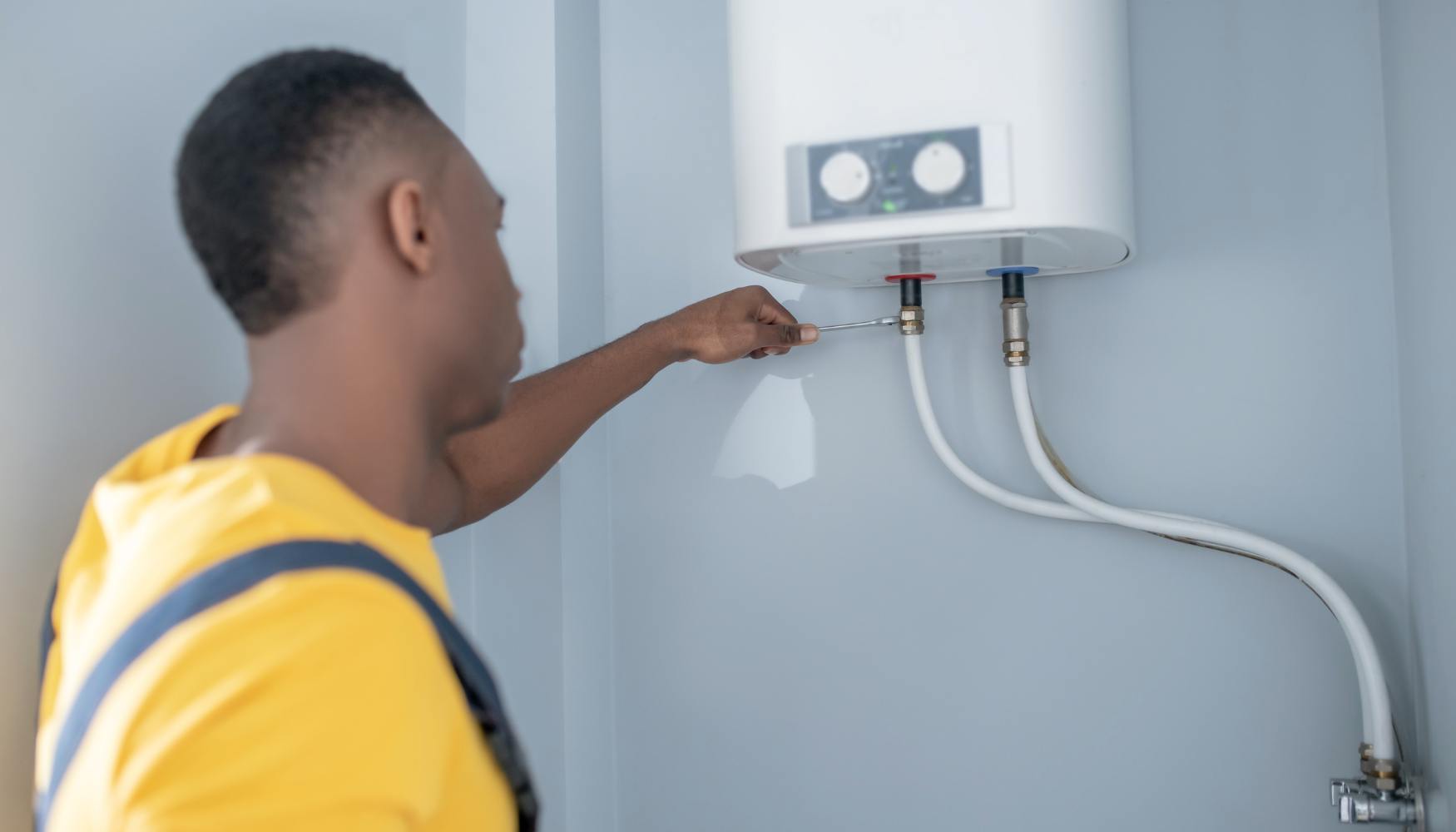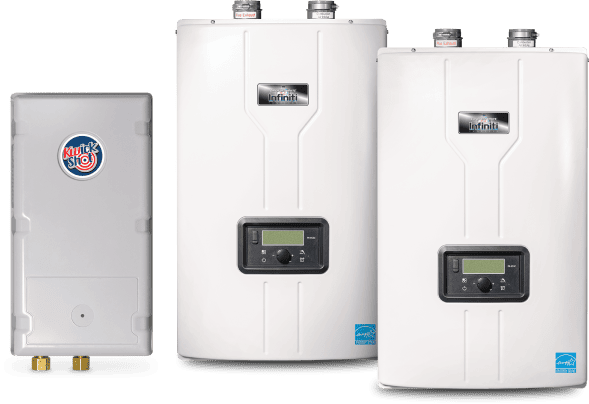Learning About The Advantages Of Continuous-Flow Water Heaters
Learning About The Advantages Of Continuous-Flow Water Heaters
Blog Article
They are making several good points related to Pros and Cons of Tankless Water Heater overall in this great article on the next paragraphs.

In a world where comfort and effectiveness reign supreme, it's no surprise that house owners are frequently on the lookout for smarter means to handle their home's power intake and comfort. One advancement that has steadily gotten appeal is the tankless hot water heater. However what exactly makes these systems attract attention from the conventional tank-based versions the majority of us grew up with? Let's dive in and discover the benefits of tankless water heaters, aiding you make a decision if it's time to make the button in your home.
Intro
Image this: you step into the shower after a long day, expecting a comforting cascade of warm water, just to be welcomed by icy droplets because the last person utilized everything up. Audio acquainted? Standard water heaters store a fixed quantity of hot water, implying you're at the grace of that container's supply. Tankless systems, on the other hand, heat water as needed. No more running out mid-shower, no more fumbling with schedules just to make certain warm water is readily available.
Understanding Tankless Water Heaters
What Are Tankless Water Heaters?
Tankless water heaters, sometimes known as on-demand or instant water heaters, give hot water just as it's required. As opposed to keeping gallons of pre-heated water, these systems kick into activity the moment you turn on the faucet. Water goes through a heat exchanger, heating up in real-time, meaning you obtain a nonstop circulation of hot water without the requirement for a huge container resting lazily by.
How Do They Vary from Conventional Systems?
Standard heaters hold a tank of warm water, utilizing power to keep that container at a constant temperature level. Tankless systems get rid of the standing supply, cutting down on squandered energy and the bulky impact of a huge cyndrical tube. Essentially, you're updating from a "stockpile" frame of mind to a "made-to-order" approach.
Common Types of Tankless Devices
Tankless water heaters typically can be found in 2 varieties: gas and electric. Gas models tend to provide higher circulation rates, suitable for bigger families, while electrical designs often serve smaller homes and are generally easier to set up. Additionally, some systems are made for point-of-use (offering one component) while others can deal with the entire home's hot water demands.
Key Advantages of Tankless Water Heaters
1. Countless Hot Water Supply
Ever needed to schedule showers so every person obtains their reasonable share of hot water? With tankless, that becomes a distant memory. As long as the heating system's flow capacity isn't exceeded, you can take back-to-back showers without developing into a popsicle.
2. Power Efficiency and Expense Savings
No more warming a titan container's worth of water and keeping it cozy throughout the day. Tankless heaters decrease standby energy losses, which can decrease energy costs. While the initial price could be higher, the long-term financial savings frequently validate the financial investment.
3. Space-Saving Layout
If your home is short on storage space, eliminating the large storage tank liberates important area. Tankless systems are small and can commonly be placed on wall surfaces, hidden in edges, or set up in tight utility closets without having all to oneself the entire area.
4. Longer Lifespan
A properly maintained tankless water heater can outlive its tank-based relative. Typical tanks could last 10-15 years, while tankless versions can keep downing along for twenty years or even more, making them a solid financial investment gradually.
5. Improved Water High Quality
Keeping water in a storage tank can sometimes result in sediment accumulation or a somewhat "off" taste. With tankless systems, fresh water is heated instantly, minimizing the possibilities of sediment build-up and possibly providing cleaner-tasting water.
Considerations Before Switching
Though the advantages are compelling, it's smart to think about a couple of factors before totally dedicating.
First Financial Investment Expenses
Tankless heating units typically feature a greater upfront cost. In between the device itself and potential setup adjustments, the preliminary expense might provide you sticker label shock. Yet remember to view it as a lasting financial investment.
Setup Needs
Depending upon your home's framework, you could need additional electric ability or gas line upgrades. Ensure you recognize the setup needs and speak with an expert to avoid surprises.
Examining Your Home's Water Usage Patterns
If your house all at once utilizes several components with high warm water demand, make certain the system's circulation rate satisfies your demands. Understanding your usage patterns aids you select the right dimension and type of tankless heating system.
Maintenance and Care Tips
Tankless systems are reasonably low maintenance, yet they aren't set-it-and-forget-it home appliances.
Regular Cleaning and Descaling
Tough water minerals can develop in the warmth exchanger, influencing effectiveness. Normal descaling (typically recommended annually) keeps the unit going for peak performance.
Yearly Specialist Examinations
A yearly checkup from an expert makes certain small concerns are caught early. They'll analyze the unit's efficiency, try to find leakages, and aid keep ideal efficiency.
Ensuring Proper Ventilation
For gas versions, correct air flow is essential to securely expel exhaust gases. Make certain airing vent systems are tidy and properly set up to stop any potential security risks.
Contrasting Different Brands and Designs
Not all tankless hot water heater are produced equal.
Investigating Dependable Manufacturers
Look for reliable brand names with a history of creating quality systems. A trusted supplier typically supplies better customer support and longer service warranties.
Reading Reviews and User Comments
Individual evaluations and feedback from neighbors or friends who have gone tankless can supply valuable understandings. Often, real-life experiences can be a lot more informing than advertising sales brochures.
Installment: DIY or Expert?
While some homeowners cherish taking on projects themselves, tankless setup could not be the best time to burst out the toolbox.
Benefits and drawbacks of DIY Installment
A DIY set up might conserve cash, yet it comes with risks. Incorrect setup can bring about inefficiency or safety issues. If you're handy and have experience, it might be practical-- however wage care.
When to Call a Professional Plumbing Technician
For the majority of, calling a pro ensures everything's done properly. An expert plumbing technician comprehends regional codes, sizing requirements, and venting criteria, lowering the risk of accidents.
Taking full advantage of Efficiency
You have actually invested in a tankless system-- now maximize its performance.
Optimum Temperature Settings
Lots of people establish their devices in between 120-140 F. Adjusting the temperature can improve convenience and financial savings. Experiment to find a pleasant spot that doesn't lose energy.
Pairing with Low-Flow Fixtures
Wish to stretch your system's capacities? Think about mounting low-flow showerheads and taps. They reduce water use, permitting your tankless system to provide a constant stream of warm water without stressing.
Environmental Influence
Tankless hot water heater line up with greener living goals.
Minimized Carbon Impact
By utilizing much less energy and just home heating water as needed, tankless systems can lower your home's carbon impact, reducing your environmental influence.
Saving Natural Resources
Less energy usage and less squandered hot water convert right into fewer natural deposits being utilized, an ecological win-win.
That Benefits Most from Tankless Heating units?
The elegance of tankless heaters is that they can fit a range of families.
Huge Families vs. Solitary Passengers
Large family members might like the limitless warm water supply, while solitary owners value the power financial savings from not heating up an entire container for just a single person's morning shower.
House Owners with Minimal Room
If your home is short on square video footage, losing the cumbersome storage tank frees up area for various other fundamentals-- or perhaps simply a lot more elbow room.
Eco-Conscious Consumers
Going tankless aligns with environmentally friendly values, guaranteeing you're not throwing away energy or resources.
Future Trends in Tankless Hot Water Heater
The globe of home devices is ever-evolving, and tankless water heaters are no exception.
Smart Home Combination
Imagine adjusting your water heater's temperature using an application or getting upkeep notifies on your phone. As clever home tech advances, we'll see even more connectivity and comfort.
Developments in Technology
R&D is regularly boosting heat exchangers, making devices a lot more efficient and resilient. Future versions could be even quieter, much more portable, and better matched for differing climates.
Final thought
Selecting a tankless water heater is more than simply updating your home's hot water system; it's buying lasting convenience, energy performance, and a greener way of life. By considering your household's water use, being mindful of installation demands, and devoting to routine maintenance, you can enjoy a constant stream of hot water without the luggage of a large tank. As modern technology develops, you can expect even smarter, more effective tankless remedies that not only make your life simpler however additionally profit the earth.
5 Benefits of Tankless Water Heaters
Save Valuable Space
Since tankless water heaters do not have a massive 40+ gallon tank of water, they are considerably smaller and can fit in more narrow spaces in your home.
If you are working with limited square footage, a tankless water heater will still provide you with the hot water you need while taking up significantly less space in your home. While the exact size of a tankless water heater varies depending on the brand, some are as small as a carry-on suitcase.
Endless Supply of Hot Water
While a traditional water heater preheats and stores your water in the tank, tankless water heaters do not rely on a reservoir system.
This means that they do not run out of hot water like traditional water heaters since they make hot water as needed. Traditional water heaters need to stop and reheat water when the tank inevitably runs out, but tankless water heaters do not have this issue.
Provide Warm Water On-Demand
As mentioned above, tankless water heaters do not preheat a certain amount of water and then store it in a massive tank to be used later. An advantage of installing a tankless water heater includes water being heated instantly whenever you turn on the faucet.
When you turn on the water, it will travel through a heat exchanger in the unit and be heated with either an electric element or a natural gas burner. Gone are the days of having to ration out your hot water to make sure that you do not run out.
Longer Life Cycle
Not only do tankless water heaters provide an endless supply of hot water for your home whenever you want it, but these units tend to have a longer lifespan than water heaters with tanks.
Tanked water heaters have an average lifespan of around 10 years, as the tank is prone to corrosion, leading to serious issues. In comparison, tankless water heaters can last for around 15 to 20 years with the proper maintenance and tune-ups.
Energy Efficient
Compared to traditional water heaters, tankless water heaters are a more energy-efficient water heating option for your home. Tank water heaters must heat and reheat the water stored in the tank throughout the day, even if you are not home.
This energy use adds up over time, leading to an increase in your energy bills and added strain on your unit. A benefit of buying a tankless water heater includes saving money since it only operates when you turn on the hot water. Since it only heats up as needed, this can decrease your energy bills and save you money in the long run.
https://callrandazzo.com/blog/5-benefits-of-tankless-water-heaters/

I hope you enjoyed reading our topic on . Thanks a lot for taking time to read through our content. Sharing is good. You never know, you may just be helping someone out. Thank you for going through it.
Schedule Report this page